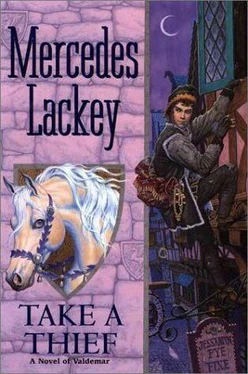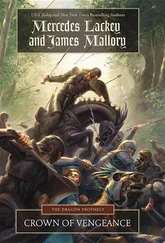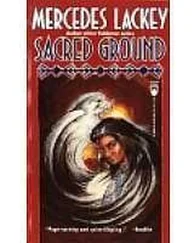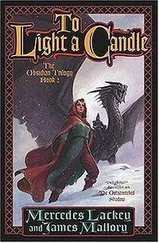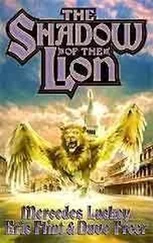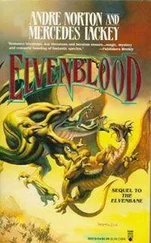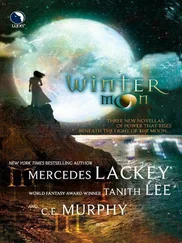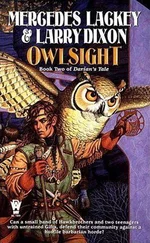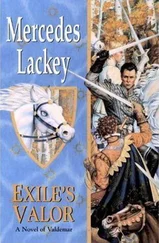There wasn't any entertainment in the Hollybush. Kalchan didn't encourage self-entertainment either, like singing or gaming. Most of the customers didn't know each other, or didn't care to, so conversation was at a minimum. As for fighting — it was wisest not even to consider it. Kalchan discouraged fighting by breaking the heads of those who fought with the iron-headed club he carried at his side, and dumped the unconscious combatants outside. The drunks here were generally morose and quiet, and either stumbled out of the door on their own two feet when their money ran out, or passed out and were unceremoniously dumped in the street to free up space for another customer. Once in the street, an unconscious, former customer had better hope that friends would take him home, or the cold would wake him up, because otherwise the thieves would strip him of everything of value and drop him in a gutter.
Difficult as it was to believe, customers kept coming in, all night long. The benches and tables were never empty until just before closing; Skif and Maisie never had a moment to rest. He'd tried once to reckon up how much money — in the tiniest of coins, the pennybit — Kalchan took in of a night. There were four pennybits to a penny; beer was two a mug, bread and stew were three for a plate. Just by way of comparison, a mug of good, clean water from something other than a pump in dubious proximity to a privy cost two pennybits (but it wouldn't get you drunk — and a mug of sweet spring water was three) and a bun like the one that Deek had bought him this afternoon was a full penny. So you could have something wholesome, though not much of it, for the same price as a full meal in the Hollybush. Evidently, bad as it was, there were enough people who felt they were getting value for their money to keep coming. The two fireside benches sat four each, and the four tables accommodated six eaters. Unless they planned a night to get drunk, the tables cleared pretty quickly. Skif figured that there were probably a couple hundred customers in here over the course of a day.
That was where Skif's grasp of numbers broke down — but he reckoned that the Hollybush brought in a couple hundred pennies in a night, and maybe a third of that during the day. Uncle Londer obviously had a good thing going here. His costs were low, buying cheap as he did, and the hire of his help was even lower. Maisie was a half-wit; Uncle Londer paid some relative of hers for her services. Whatever he paid, it wasn't much, and she never saw any of it; all she got was food and a place to sleep. Skif's labor was free, of course, and he seldom ate here. And the cook —
Well, he didn't know what the cook got. He never saw her getting paid, but she stayed, so she must have been getting something. It couldn't have been that much; even he could cook better than she did.
Maybe the attraction for her was the unlimited supply of beer. He never saw her without a mug somewhere nearby, and she had the yellowish color of someone who was drinking herself to death, although her shuffling footsteps were steady and she never seemed drunk.
The upshot was, this place was mostly profit for Londer, that much was for sure. Skif wasn't going to feel at all guilty about vanishing in a moon. Uncle Londer could just find himself another boy or do without.
What Kalchan was getting out of the situation was less clear; certainly he had Maisie's dubious charms to enjoy whenever he cared to, he did get real food rather than tavern swill, and he had his own special butt of drink that no one else touched, but what else was he getting? Every night after he locked the front door, he waddled down to his father's home with the night's takings, and came back empty-handed except for the box that held his own dinner. He slept in the common room on a greasy featherbed piled high with blankets that were stored during the day in the unused staircase. Was Londer splitting the profit with his son? If he was, what in Havens was Kalchan spending it on? It wasn't clothing, it wasn't women — not even the shabbiest streetwalker would touch Kalchan with a barge pole without a lot more up front than the penny or two Kalchan was likely to offer.
It had occurred to Skif lately that maybe Cousin Kalchan was just as stupid as he looked, and Uncle Londer gave him nothing in return for his labors at the Hollybush. If so, he didn't feel in the least sorry for him.
By the time that Kalchan dumped the last of the bench warmers outside and locked the front door, Skif was absolutely dead on his feet. Not tired — he'd had that nap in the wash house — but aching from neck to toes and longing for a chance to sit down.
Kalchan threw the bolt on the front door, and waddled out the back; when Skif heard the door slam shut behind him, he dropped down onto a bench to rest for a moment. The cook brought in three plates of stew and bread, and dropped them on the table. Skif took one look at the greasy, congealing mess, and pushed it toward Maisie, who had come to rest across from him and was already shoveling her food into her mouth as if she was afraid it was going to be taken from her at any moment. The cook had brought her own mug and picked up the beer pitcher that Kalchan had left on a table, shaking it experimentally. Finding there was still beer in it, she took it, her mug, and her plate to the fireside and settled down facing the remains of the flames, her back to her fellow workers.
Maisie finished her plate, picked up the platter in both hands and licked it, then went on to Skif's portion. She never said thank you, she never said anything. She never even acknowledged his presence.
Skif shuddered, got to his feet, and plodded into the now-deserted kitchen.
From his cubby, he took a tiny tin pot and a packet of chava leaves that he'd filched from Lord Orthallen's kitchen. Dipping water out of the barrel, he added the leaves and brewed himself a bedtime cup of bitter chava. The stuff was supposed to be good for you and make you feel relaxed and calm; at any rate, at this time of year it made a nice warm spot in his belly that let him get off to sleep.
He drank it quickly to get it down before Kalchan came back and then retreated to the cubby. The tin pot was shoved into the farthest corner where he kept a few other things that Kalchan didn't think worth taking — his own wooden spoon, a couple of pretty pebbles, some bird feathers, a spinning top he'd found. Then he wrapped himself up in his cast-off blankets, pillowed his head on his arms, and waited for Kalchan to get back, feigning sleep.
The only light in the kitchen came from the fire, and it was dying, it was the cook's job to bank it for the night, but she forgot more than half the time, which was why he had to start it again in the morning. When Kalchan came back, grunting and snorting, it was hardly more than a few flames over glowing coals. Kalchan pulled the door shut and dropped the bar over the inside, paying no attention to Skif.
Which meant that it had been a good night by Kalchan's standards. If it hadn't been, he would either have hauled Skif out and knocked him around a bit before letting him get back to his bed, or he'd have bawled for the cook and had her lay into Skif.
Kalchan's return was the cook's signal to go on up to her loft. She shuffled in, dropped the curtain over the door, shoved ashes over the coals, and limped up the stairs. There was some sound of fumbling with cloth overhead, then silence.
Meanwhile, Kalchan settled down to his dinner, which he had brought back from his father's kitchen. In theory, half of that dinner was supposed to be Skif's, but in all the time he'd lived here, he'd never gotten a morsel of it. Kalchan “shared” it with Maisie — that is, he dropped tidbits to her as if she was a dog, in return for which —
Skif generally tried to be asleep by that time, the moment when Kalchan's bedding was arranged to his satisfaction beside the fireplace, and Maisie was arranged to his satisfaction in it. And tonight, both exhaustion and the unusual circumstance of having had three decent meals in a day conspired to grant him his wish for slumber.
Читать дальше
